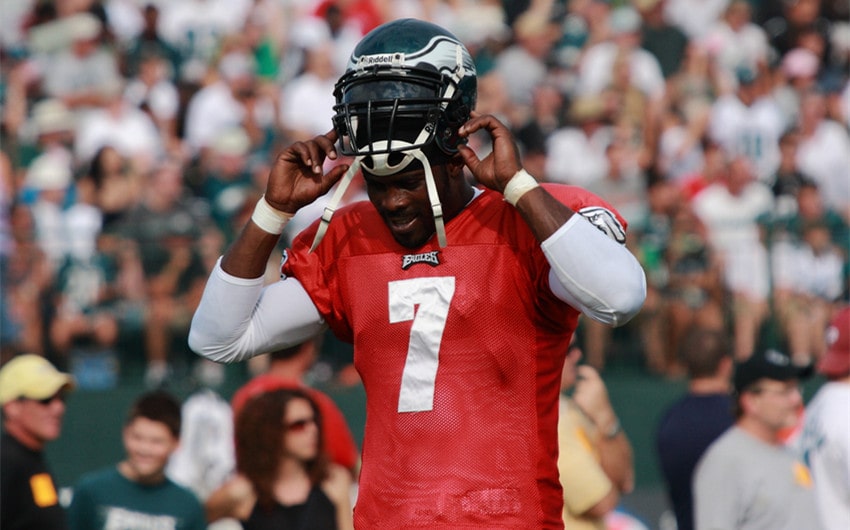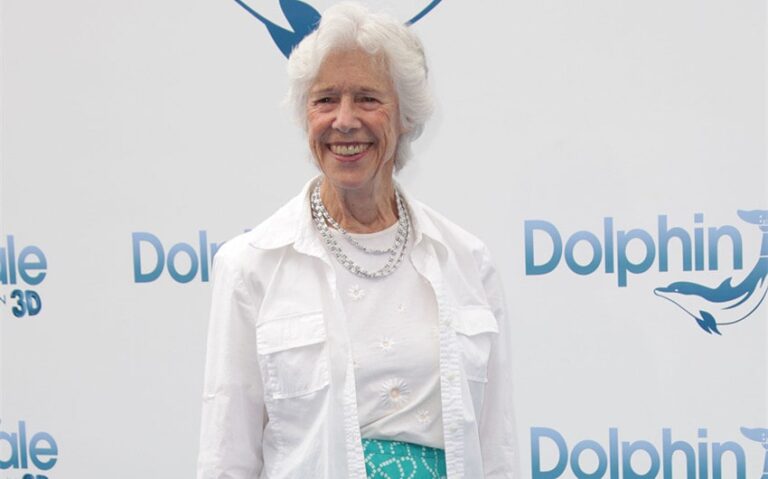What Is Michael Vick’s Net Worth? Understanding His Financial Journey
When you ask what is Michael Vick’s net worth, you’re diving into one of the most dramatic financial stories in modern sports history. Once celebrated as the NFL’s highest-paid player and one of the most exciting quarterbacks ever, Vick’s career was as spectacular as it was turbulent. He earned over $100 million during his prime but later lost most of it after legal troubles, imprisonment, and bankruptcy. Despite those setbacks, Vick managed an impressive comeback both on and off the field, rebuilding his career, reputation, and financial stability. As of 2025, his estimated net worth sits around $16 million, a testament to perseverance and redemption in the face of adversity.
Who Is Michael Vick?
Michael Dwayne Vick was born on June 26, 1980, in Newport News, Virginia. Raised in a low-income neighborhood, Vick grew up with limited resources but exceptional athletic talent. Football became his path out of poverty, and by the time he played for Virginia Tech, his skill, speed, and improvisational style made him a household name in college football.
In 2001, Vick was selected as the first overall pick in the NFL Draft by the Atlanta Falcons, becoming the first African American quarterback ever to be chosen No. 1 overall. He quickly transformed the position with his unique dual-threat ability—combining elite passing skills with record-breaking rushing performances. His dynamic play style revolutionized how quarterbacks were viewed in the NFL, and he became a cultural icon almost overnight.
By the early 2000s, Michael Vick wasn’t just a football star—he was a brand. His Nike commercials, video game covers (Madden NFL 2004 being the most iconic), and highlight-reel plays made him one of the most recognizable athletes in the world. However, his fame and fortune would soon be overshadowed by one of the most infamous scandals in sports history.
Career Earnings and Contracts
At his peak, Michael Vick was among the richest athletes in the United States. His first contract with the Atlanta Falcons in 2001 was worth $62 million over six years, including bonuses and incentives. By 2004, he signed an even larger deal—a 10-year, $130 million contract, with $37 million guaranteed—making him the highest-paid player in the NFL at the time.
His financial portfolio expanded quickly. Endorsements from companies like Nike, Coca-Cola, EA Sports, and Powerade earned him millions in additional income each year. Nike, in particular, built entire marketing campaigns around his explosive athleticism. Combined with appearances, licensing deals, and sponsorships, Vick’s annual earnings at his peak were estimated at $25–30 million per year.
By 2007, before his legal troubles, Vick’s career earnings were estimated at over $100 million—a fortune that placed him among the top-earning athletes in the world. Yet, the same year would bring a devastating turning point that nearly wiped out everything he had built.
The Setback: Legal Troubles, Prison, and Bankruptcy
In 2007, Michael Vick’s world came crashing down when he was implicated in a dogfighting ring known as “Bad Newz Kennels.” The investigation led to federal charges for animal cruelty, conspiracy, and illegal gambling. Vick pleaded guilty and was sentenced to 23 months in federal prison, effectively ending his NFL career at the time.
The fallout was immediate and severe. He lost nearly all of his endorsement deals, including his high-profile Nike contract. The Atlanta Falcons also demanded repayment of portions of his signing bonus, amounting to millions of dollars. Without his income and facing mounting legal costs, Vick’s financial empire collapsed.
In 2008, while still serving his prison sentence, Vick filed for Chapter 11 bankruptcy, listing debts of around $17 million. Court documents revealed that his financial situation was dire: unpaid taxes, legal fees, and a series of failed real estate and business investments had drained his wealth. His assets were liquidated to pay creditors, and the NFL star who had once been worth tens of millions found himself effectively broke.
This period became one of the most public examples of how fame and fortune can disappear almost overnight. However, unlike many athletes who never recover from financial ruin, Vick began plotting a comeback—both professionally and financially.
The Comeback and Financial Recovery
After serving his sentence and being released from prison in 2009, Michael Vick began his road to redemption. He signed a one-year deal with the Philadelphia Eagles, initially as a backup quarterback. Despite skepticism from fans and media, his performance in the 2010 season proved he was still one of the league’s most electrifying players.
That same year, Vick led the Eagles to the playoffs and earned NFL Comeback Player of the Year honors. His resurgence on the field led to a six-year, $100 million contract extension in 2011, including $40 million guaranteed. While not all of that money was realized due to contract restructuring and team changes, it marked one of the most remarkable comebacks in professional sports history.
During his second stint in the NFL, Vick began taking financial management seriously. He worked closely with advisors to budget his earnings, pay off creditors, and rebuild his savings. By 2014, he had successfully repaid nearly all of his bankruptcy obligations—a rare achievement among athletes who file for bankruptcy.
After his time with the Eagles, Vick played for the New York Jets and Pittsburgh Steelers before retiring from professional football in 2017. His disciplined financial management and post-retirement career helped him steadily rebuild his wealth.
Current Net Worth and Income Sources
So, what is Michael Vick’s net worth today? As of 2025, most reliable estimates place his net worth around $16 million, though figures range from $15 to $20 million depending on the source.
The bulk of Vick’s current income comes from:
-
Broadcasting and Media Work – Vick joined Fox Sports as an NFL analyst, providing commentary and analysis on football games. This position gives him a steady income and maintains his visibility in the sports world.
-
Endorsements and Speaking Engagements – While his endorsement portfolio is smaller than in his playing days, Vick has regained credibility through partnerships with brands and appearances at corporate events.
-
Real Estate and Investments – Reports suggest that Vick has invested in real estate and small business ventures, though he keeps these details private.
-
Coaching and Mentoring – Vick has worked as a mentor for young athletes and as an advisor to NFL players, occasionally serving as a consultant for teams and training programs.
Though his wealth is modest compared to his peak earnings, it represents a stable and sustainable fortune earned through discipline and hard work.
Assets and Lifestyle
Michael Vick’s lifestyle today reflects balance rather than excess. He owns a home in Florida, where he lives with his family, and reportedly owns a few luxury vehicles, though he no longer flaunts them publicly as he once did.
During his playing career, he was known for an extravagant lifestyle—custom cars, high-end jewelry, and a collection of homes. However, after bankruptcy, Vick embraced a more modest approach. He’s frequently spoken about the importance of financial literacy, advising young athletes not to make the same mistakes he did.
Vick also dedicates significant time and money to charitable causes. He supports animal welfare organizations and youth mentorship programs, hoping to use his story as an example of second chances and personal growth.
Lessons from Michael Vick’s Financial Journey
Michael Vick’s story serves as a cautionary tale about the risks of wealth mismanagement—but also as a story of redemption. Few athletes have experienced such a dramatic financial fall and still managed to recover.
From a practical standpoint, his journey underscores key lessons:
-
Financial literacy is essential. Even the most successful athletes can lose everything without proper guidance.
-
Reputation affects earnings. Endorsements, which once made up a major part of Vick’s income, evaporated when his public image collapsed.
-
Recovery is possible with discipline. Through patience, hard work, and a commitment to repayment, Vick managed to rebuild his life and finances.
For you, the takeaway is clear: wealth is not just about how much you earn, but how you manage, invest, and protect it—especially when life takes an unexpected turn.






